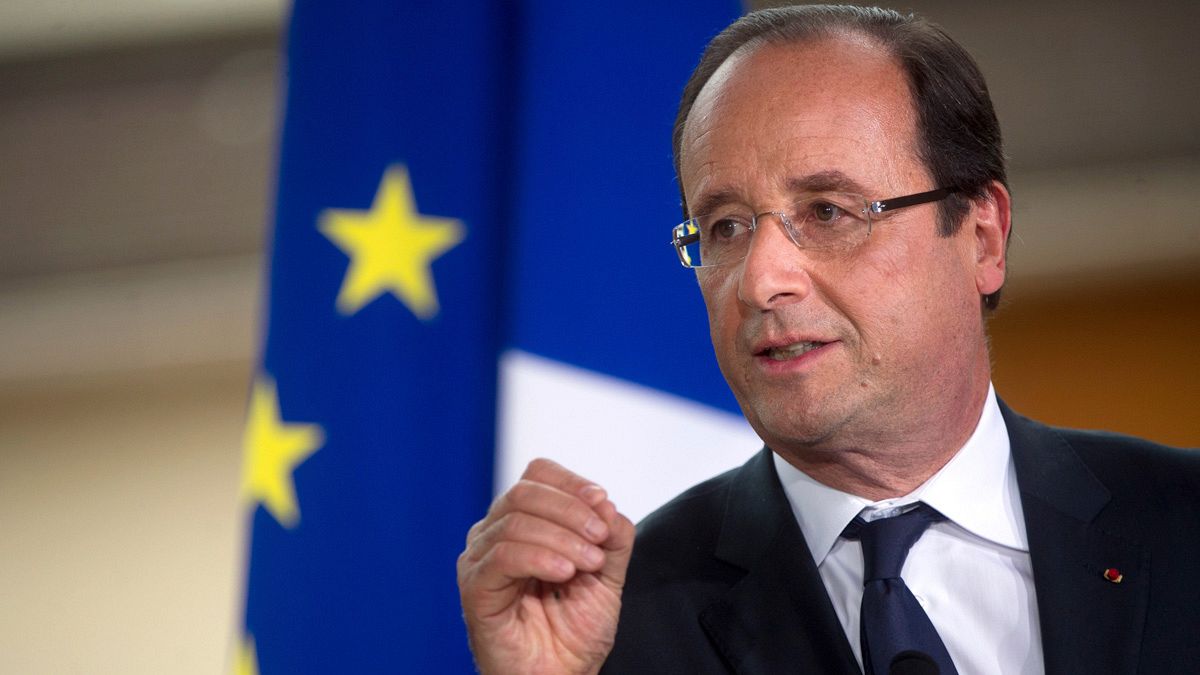French President Francois Hollande’s Socialist party are celebrating after gaining an outright majority in the National Assembly.
Sunday’s second-round election win is being hailed as the strongest mandate for any left-wing government in France for 30 years.
Analysts think the endorsement should help Hollande face off with Germany, who’s strong message of austerity contrasts with Hollandes plan to promote economic growth.
“We have a President here who is directly elected by the people, who can rely on a strong majority, who comes to power with an ambitious European programme,” said Professor Fréderic Sawicki from Université Paris Sorbonne.
“Compared to German Chancellor Angela Merkel, who will face elections next year and who has to deal with a coalition, President Hollande is in a position which can reinforce his European leadership.”
Hollande has called for a European growth stimulus package of around 120 billion euros. But some commentators say persuading Merkel to back
his ambtious plan could be a problem. And then there’s France’s own budget deficit to be tackled, which the Socialists say they’ll tackle by increasing taxes for the wealthy.
Euronews’ Paris correspondent Gionvanna Magi says: “The endorsement that Hollande’s government have been given should allow them to deal not only with France’s economic problems, but also to contribute, with a sense of increased credibility, to the management of the eurozone crisis.”
French election impact on Europe
Sophie Desjardin has been talking to an expert on Franco-German relations and European issues following the results in France’s parliamentary elections.
Euronews: “With us to analyse Sunday’s election and in particular understand the issues at a European level is Marion Gaillard. Hello, You are an historian, lecturer and a specialist in European politics.
‘Marion, France has an absolute majority now, a president and a parliament on the left, the promised reforms will be implemented unhindered, what does it fundamentally change?”
Marion Gaillard: “ We can say that it gives Francois Hollande in his domestic policy some leeway to push through the reforms for which he was elected. In Europe it leaves him with more of a free hand and room to manoeuvre in negotiations and in particular on rescuing the eurozone and in negotiations with his colleagues on the left whom he can now reassure.”
Euronews: “A socialist government is rare in Europe at the moment, they are only 5, in this general wave of rejection of socialism, how can we interpret this victory for the left in France?”
Marion Gaillard: “You can interpret it in two ways, first with a European focus precisely because the crisis has led to many governments being voted out in Europe whether Berlusconi’s Italy or Spain with Zapatero’s government, for example, or obviously Papandreou in Greece, so we can see how the crisis has led to the end of existing governments.
‘But we can also use it as an internal measure on domestic policies. There was no change in France for 10 years we have had a classic political balance and now a rejection of the former president and his policies.”
Euronews: “We are still far from a red wave across Europe, but could this particular model focusing on growth as advocated by Holland, be emulated?”
Marion Gaillard: “We see that Francois Hollande’s proposals have caused favourable echoes in many countries including among the leaders who had refused to see him during the campaign, Mr. Rajoy or Mr. Monti, so it has been emulated and it opens up the debate, and is important for the future.”
Euronews: “Francois Hollande has a free hand, Angela Merkel on her side faces elections in little over a year. She is at risk and victory could go to the Social Democrats SPD, supported by Holland. What will happen during these months of “cohabitation” between Merkel and Hollande?”
Marion Gaillard: “First of all we must not go too quickly, Angela Merkel has not yet lost, far from it. There have been, “cohabitations” as you put it in the past which have been most productive for Europe, one thinks of Valery Giscard d’Estaing and Helmut Schmidt, François Mitterrand and Helmut Kohl. The fact that they were not of the same political persuasion or party has never prevented the Franco-German alliance working well. So there are ways to reach agreement today between the Chancellor and the President on the issues of the eurozone. Without doubt the new government has to find ways to be more audacious in this political union since France has been seen to be reticent at times on these questions and there are expectations on the German side.”
Euronews: “The EU summit in late June is eagerly awaited, Can you envisage any country leaving the eurozone. What would that mean for Europe if it was to happen?”
Marion Gaillard: “We can not exclude a scenario where some countries leave the eurozone but personally I think we should do everything to avoid it because it would be very serious for the euro area and for European integration.
‘European integration has experienced crises, crashes in the past as the rejection of the European Defence communique in 1954 or rejection of the constitution in 2005, but the community has never reversed policies never gone backwards. It would be a precedent and I think a precedent fraught with consequences.”
Euronews: “Marion thank you for your analysis, I might add that you are a specialist in Franco-German relations and European issues, thank you and goodbye.”
